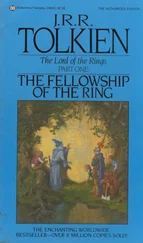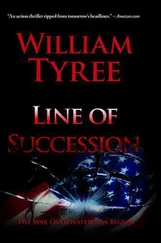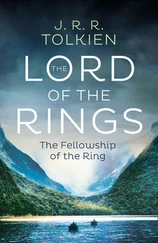William Tyree - The Fellowship
Здесь есть возможность читать онлайн «William Tyree - The Fellowship» весь текст электронной книги совершенно бесплатно (целиком полную версию без сокращений). В некоторых случаях можно слушать аудио, скачать через торрент в формате fb2 и присутствует краткое содержание. Год выпуска: 2013, Издательство: Massive, Жанр: Триллер, на английском языке. Описание произведения, (предисловие) а так же отзывы посетителей доступны на портале библиотеки ЛибКат.
- Название:The Fellowship
- Автор:
- Издательство:Massive
- Жанр:
- Год:2013
- ISBN:нет данных
- Рейтинг книги:5 / 5. Голосов: 1
-
Избранное:Добавить в избранное
- Отзывы:
-
Ваша оценка:
- 100
- 1
- 2
- 3
- 4
- 5
The Fellowship: краткое содержание, описание и аннотация
Предлагаем к чтению аннотацию, описание, краткое содержание или предисловие (зависит от того, что написал сам автор книги «The Fellowship»). Если вы не нашли необходимую информацию о книге — напишите в комментариях, мы постараемся отыскать её.
The Fellowship — читать онлайн бесплатно полную книгу (весь текст) целиком
Ниже представлен текст книги, разбитый по страницам. Система сохранения места последней прочитанной страницы, позволяет с удобством читать онлайн бесплатно книгу «The Fellowship», без необходимости каждый раз заново искать на чём Вы остановились. Поставьте закладку, и сможете в любой момент перейти на страницу, на которой закончили чтение.
Интервал:
Закладка:
Fleischer pulled a hand-rolled cigarette from a silver case. “I doubt anyone here was guilty of such irrational exuberance.”
“I find your tone decidedly unpatriotic,” Hahn said.
“Regardless,” Nagel cut in, “the fact is that political indoctrination in the occupied countries has largely failed. It’s also time that we all face the fact that Germany has been thrust into battles with armies that are much larger than our own.”
The grim portrait of the national condition seemed to catch Hahn off guard. “How can this be? I am constantly hearing that we are liberating new Germanic populations with every new invasion. Poland. Austria. Norway. Czechoslovakia. I saw on the newsreel that even now Germans from Romania are protecting our flank in Stalingrad. How can we not have the largest army on Earth?”
The condescension in Nagel’s glare could only come from someone who had already suffered the pain of commanding a humiliated army, as he had done in the First World War. “Just because these foreigners are Germanic does not mean that they want to fight for us. This is true even in Denmark, where, despite the shared ethnic heritage between Danes and Germans, Jews remain free, and military conscription numbers are far below expectations.”
Ritter nodded in agreement. “I might add that the Japanese will only keep the Americans busy for so long. Once they are defeated, what’s to stop the Americans from coming here?”
Nagel’s voice held resignation. “Also true. We cannot win purely by military means. We must gain a psychological and political advantage.”
Wolf felt the ground shift beneath his feet. It had been obvious that a great deal of focus had been shifted to the eastern front, and considering the news from Stalingrad, all signs pointed to a protracted war with the Russians. But it was the first he had heard anyone — let alone someone of Nagel’s seniority — suggest that Germany could actually lose the war entirely.
He shuddered visibly, allowing himself, for the first time, to imagine the Russian flag flying from the Munich town hall building.
*
After a brief respite, the group once again gathered in the sealed room. Bruno Fleischer lit his cigarette and drew from it. His blue eyes searched the faces of his Ahnenerbe counterparts, finally coming to rest on Dr. Seiler, whose expression of tight-lipped exasperation was directed at Fleischer.
“I still fail to see how the pursuit of religious relics will help the war effort,” Fleischer said.
“What Mr. Nagel is suggesting,” Dr. Seiler replied, “is that we look at the root cause of these troubles. Prior to the war, all of Europe was shocked by our technological superiority. They marveled at how our economy grew from the ashes of the Versailles Treaty to be the most robust in the world. Our achievements were without question. So why do they not embrace us with open arms?”
“The brutality of our armies,” Fleischer stated. “We’ve all seen the news reels. The Wehrmacht celebrates openly while civilians lay dead around them.”
“Fundamentally wrong,” Seiler countered. “Brutality is not the problem. History tells us that civilizations are willing to accept cruelty and even mass murder during wartime, but only if it is framed within a religious context.”
“And there lies the problem,” Ritter said. “Today Germany is viewed as Godless.”
Wolf found himself on his feet, unable to control himself. “The German people are not Godless,” he spurted. “We’re just made to believe that we should be.”
Once the words had left his mouth, the group’s attention left Wolf feeling empty and vulnerable. He shrunk back into his seat, filled with embarrassment.
The 32-year-old Fleischer was the first to come to his defense. “I have to agree. Hitler’s views are out of step with society, but his views alone are what the world sees.”
“And we must change those views,” Seiler said. “We will use science to prove Christianity’s relevance to the fuhrer.”
Wolf’s mind tumbled back to Paris, when Himmler had alluded to such a strategy. The war cannot last forever. Europe cannot sustain a protracted conflict. But imagine if the fuhrer could be persuaded to turn to Christ?
“And how would we do that?” Hahn challenged.
“By presenting a factual view of Christianity that is palatable to both the fuhrer and Europe. One that the fuhrer himself will administrate.”
Fleischer snorted. “The fuhrer will look grand in his papal tiara.”
“You joke,” Nagel said, “But imagine the implications on our allies. Take Italy, for example. We need a strong ally to protect our southern borders. Italy is a country of tribes that can only be managed and motivated through organized religion.”
“They seem quite happy with the one they have,” Fleischer noted.
“And yet they view Catholicism as totally disconnected from National Socialism. Therefore, their troops are not unskilled, but they are largely unmotivated.”
“Germany may be increasingly secular,” Ritter agreed, “but it’s the Russians that are openly atheistic.”
“As Himmler has noted many times,” Dr. Seiler said. “From a propaganda perspective, there is an enormous opportunity for us to frame the Russians as the Godless enemy in the eyes of the world. Therefore our objective is to find additional scientific proof of an Aryan Jesus. If we can do this, then Hitler might be persuaded to embrace Christianity with the same passion with which he promotes his ethnic agenda.”
Fleischer removed a silver flask from his pocket and poured several ounces of cognac into his coffee. “Haven’t any of you read Conversations with Hitler ?”
“Are you mad?” Nagel spat. “That book is filled with lies, and I find it highly suspect that you would be in possession of it!”
The book, which had also been published under the title The Voice of Destruction , had been written by Hermann Rauschning, the former president of the Danzig Senate. Rauschning was a politician who had infiltrated Hitler’s social circle before fleeing the country in 1936. His book, which was officially banned in Germany, painted Hitler as a ruthless and conniving dictator who plotted the destruction of Catholicism even while negotiating a treaty with it.
“Relax,” Fleischer said. “I don’t own the book. On my last trip to Hamburg, I happened to find an excerpt dropped by British planes. My point is that Hitler is quoted in the book dismissing the Aryan Jesus concept as nonsense. He wants Germans to worship the swastika, not the cross.”
“And you’d believe a traitor like Rauschning over Himmler?” Nagel said.
“I never said that.”
Ritter stood, inserting himself in the middle of the battle. “Even if Rauschning’s account is true,” Ritter ventured, “Those conversations took place years ago. Who knows the fuhrer’s heart today better than Heinrich Himmler? If he says that Hitler can be persuaded, then we should trust him.”
Ritter agreed. “Just imagine it. All of Europe united against Russia in a Holy War. Even the French Resistance might be persuaded to lay down their arms.”
“And don’t forget the Americans,” Dr. Seiler added. “The Americans I have met in my expeditions seem to be largely inseparable from their religious beliefs. If Germany were to embrace Christianity, the Americans could never side with the atheist Russians.”
“And let us not forget about the resettlement,” Nagel pointed out, referencing the government’s program of resettling Jews to the eastern territories. “There are still some very patriotic Germans who find these policies morally untenable because Jesus himself was thought to be Jewish. But if it could be proven otherwise, then this resistance might evaporate, would it not?”
Читать дальшеИнтервал:
Закладка:
Похожие книги на «The Fellowship»
Представляем Вашему вниманию похожие книги на «The Fellowship» списком для выбора. Мы отобрали схожую по названию и смыслу литературу в надежде предоставить читателям больше вариантов отыскать новые, интересные, ещё непрочитанные произведения.
Обсуждение, отзывы о книге «The Fellowship» и просто собственные мнения читателей. Оставьте ваши комментарии, напишите, что Вы думаете о произведении, его смысле или главных героях. Укажите что конкретно понравилось, а что нет, и почему Вы так считаете.











